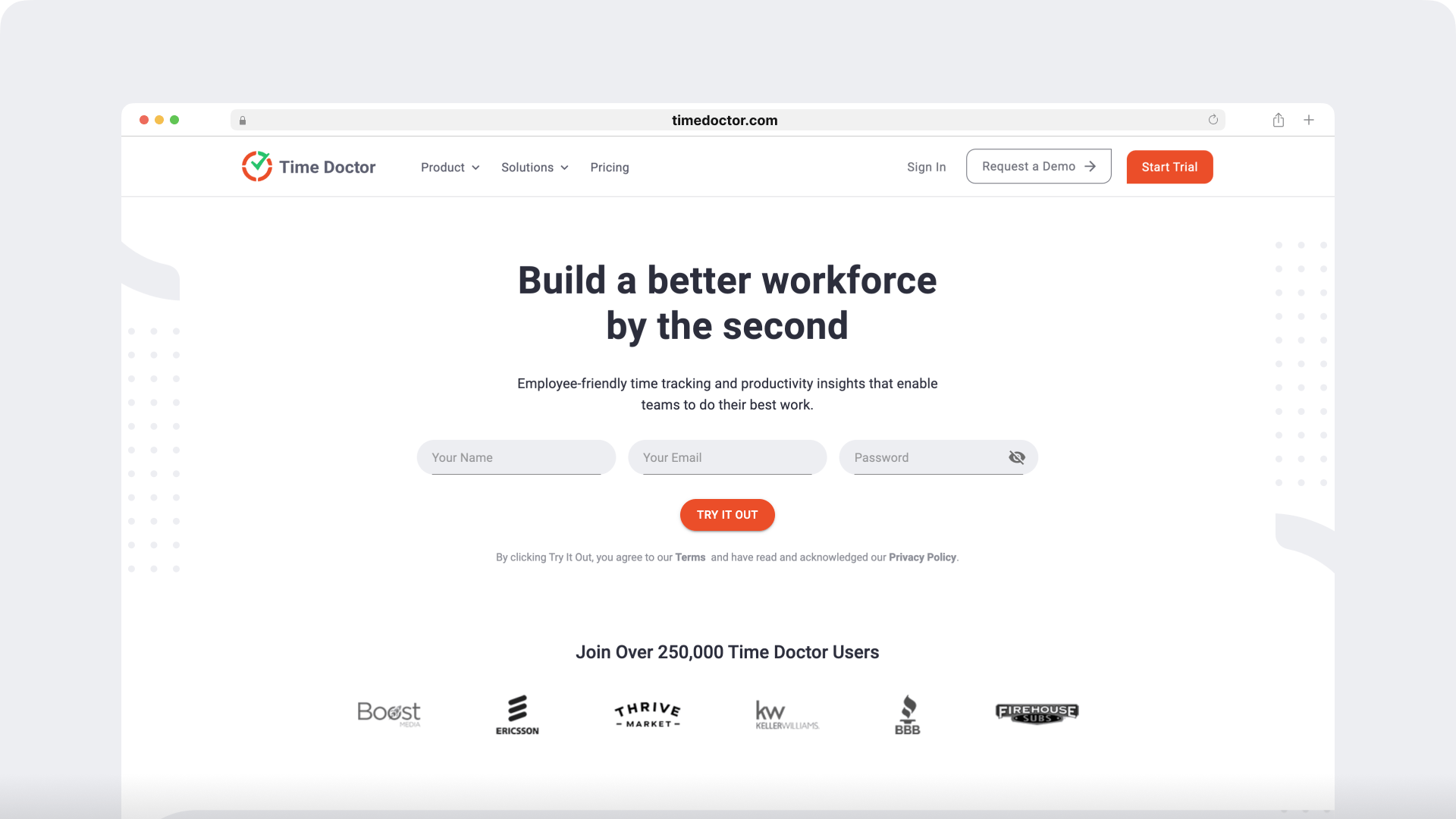5.2K
South Korea is home to various industry giants in East Asia, including Samsung and Hyundai.
The South Korean peninsula is also one of the largest economies in the world, with great business opportunities and a high employment rate, making it a well-positioned outsourcing location on the global map.
But what’s the average salary in South Korea?
The average salary in South Korea is around 3,900,000 KRW (South Korean Won) or USD 2900 per month (as per the exchange rate in May 2024).
In this article, we’ll dive into all the key statistics around the average salary in South Korea, the median salary, minimum wage, and annual increment rate. We’ll look at some key benefits of outsourcing your business to South Korea.
Table of Contents
Let’s get started!
What is the average salary in South Korea?
As with any other country, the average salary in South Korea can vary based on various factors, including your role, working hours, years of experience, the job market, and the industry.
While South Korean salaries tend to be lower than salaries in countries like the UK, USA, Australia, and Hong Kong, there’s still a great variation within the country.
According to Salary Explorer, the average South Korean employee gets paid about 46,800,000 KRW a year (USD 34,803) before income tax.
These average salary figures can offer an insight into the South Korean economy and the job market, helping you make informed business decisions. Let’s take a look at some important statistics regarding the same.
1. Average salary range
On average, South Korean salaries can range from about 983,000 KRW per month (USD 731) on the lower end to 17,400,000 KRW per month (USD 12,940) on the higher end.
Note that these figures only indicate the average salary earned by South Koreans and do not represent the actual maximum salary and minimum salary.
2. Median salary
The median salary is the ‘midpoint’ within a salary range. It’s calculated by arranging all the given salaries in ascending order and choosing the midpoint in the list.
For instance, South Korea’s median salary is 3,500,000 KRW/month (USD 2603).
What this means is that half of the working population earns less than 3,500,000 KRW per month and half of them earn more.
3. Minimum wage
A minimum wage is the lowest wage that an employer is legally bound to pay their regular employees as compensation. The South Korean government passed the Minimum Wage Act in 1986 to standardize and protect the minimum wage of its labor force.
According to the Wage Indicator, the minimum wage in South Korea is 9,860 KRW per hour (USD 7.33) for 2024.
So is the average wage the same as the average salary?
Not really.
An hourly wage is usually paid on a working hour basis for part-time or full-time work and doesn’t include any bonus, paid leave, health insurance, severance pay, or transportation allowance.
On the other hand, a salary includes all of these benefits along with the employees’ base remuneration for their job each month.

A breakdown of average salary in South Korea
You’d have to take a look at several other factors to better understand South Korea’s average salary distribution.
Let’s take a look:
1. By experience level
Job experience is perhaps the most important factor in determining salary range. So employees with more experience will earn more than their juniors.
In South Korea, employees with 2-5 years of experience earn about 32% more average income than freshers with no experience. Similarly, professionals with more than 5 years of experience earn 36% more than those with lesser experience.
Of course, the salary increases further by 21% when employees cross over 10 years of experience, and an additional 14% after 15 years of experience in total.
2. By city
In South Korea, the average monthly income is likely to vary from city to city. Regions with lower infrastructure and fewer businesses tend to have lower average salaries.
Let’s take a look at some of the average salaries in various cities of the country.
| City | Average Monthly Salary (in KRW) |
| Bucheon | 3,620,000 |
| Busan | 4,300,000 |
| Daegu | 4,150,000 |
| Daejeon | 4,070,000 |
| Goyang | 3,770,000 |
| Gwangju | 4,000,000 |
| Incheon | 4,230,000 |
| Seongnam | 3,690,000 |
| Seoul | 4,380,000 |
| Suwon | 3,920,000 |
Source: salaryexplorer.com (2024)
3. By education
The average South Korean worker with a certificate or diploma earns 17% more than someone who has only attended high school.
Employees with a bachelor’s degree earn 24% higher salaries than those with a diploma. And an employee with a master’s degree will earn 29% more than the ones with a bachelor’s.
Finally, Ph.D. candidates earn the highest salary, over 23% more than those with a master’s degree.
4. By industry
The average salary across sectors varies greatly due to the demand for each profession. Some professions pay much higher than others.
For example, an employee in the IT sector may earn more than one in the manufacturing sector or construction, for the same experience level.
Here’s how much people earn in the major industries of South Korea:
| Industry Sector | Average Monthly Salary (in KRW) |
| Architecture | 3,800,000 |
| Banking | 4,250,000 |
| Construction / Building / Installation | 2,410,000 |
| Engineering | 3,300,000 |
| Factory and Manufacturing | 2,710,000 |
| Health and Medical | 5,800,000 |
| Human Resources | 3,740,000 |
| Public Relations | 3,840,000 |
| Real Estate | 4,280,000 |
| Teaching / Education | 4,070,000 |
Source: salaryexplorer.com (2024)
Note: The figures mentioned above are derived from salary survey reports of South Korean employees, including foreign workers. The actual figures may vary based on different factors.
Now that we’ve seen the average salary in South Korea and how it varies depending on various factors, let’s take a look at how much people across various professions earn.
Average salary for popular professions in South Korea
The various professions in South Korea are compensated differently based on their industry demand, skill proficiency, etc.
Here’s a brief list of the average salary for various popular professions in South Korea:
| Job Title | Average Monthly Salary (in KRW) |
| Chief Executive Officer | 8,780,000 |
| Chief Financial Officer | 8,560,000 |
| Product Manager | 5,780,000 |
| Financial Analyst | 5,260,000 |
| Project Manager | 4,560,000 |
| Secondary School Teacher | 3,090,000 |
| Chef | 2,510,000 |
| Customer Support Officer | 2,450,000 |
Source: salaryexplorer.com (2024)
Next, let’s find out South Korea’s average salary increment rate.
Average salary increment in South Korea
Although we generally consider annual increments when it comes to salary hikes, that’s not always the case.
Employees in South Korea are most likely to get a salary increment of 9% every 16 months. To give you a fair comparison, the rest of the world receives a 3% hike on average in 16 months.
Senior, more-experienced employees are more likely to receive salary hikes. Companies in thriving industries are also more likely to give out frequent salary increments along with other bonuses.
Here’s a rough estimation of the average annual salary increments in each industry:
| Industry Sector | Average Annual Salary Increment |
| Banking | 7% |
| Energy | 11% |
| Information Technology | 10% |
| Healthcare | 10% |
| Travel | 11% |
| Construction | 8% |
| Teaching | 9% |
Source: salaryexplorer.com (2024)
Next, let’s take a look at why you should outsource your business processes to South Korea.
5 key benefits of outsourcing to South Korea
South Korea has a lot to offer to businesses and employees, including desirable job opportunities and a conducive outsourcing environment.
Here are some of the key benefits of outsourcing to South Korea.
1. Cost-effectiveness
South Korea is about 22% cheaper than the USA in terms of the cost of living, housing, tax, wages, etc. To give you a reference, 1 U.S. dollar equals about 1,320 Korean Won as of May 2023.
Businesses in the country enjoy various benefits like lower startup costs, cash grants, tax rebates, and free-trade zones. As a result, it’s growing in popularity as a global business center.
At the start of 2020, over USD 9.2 Billion were invested in South Korea and 2021 saw the investment go up to USD 29.5 Billion. These figures highlight the fantastic outsourcing potential of the country.
2. Fast-growing economy
SSouth Korea is surrounded by China, Japan, and North Korea, offering access to these markets and over 1.7 million consumers. Not to mention, it has the 14th largest economyin the world.
The country’s GDP fell by only 3.2% during the pandemic in 2020, compared to 14% in France. To top it off, South Korea surpassed the average range by the Organization for Economic Co-operation and Development (OECD) in GDP per capita for the first time in 2022!
3. Highly skilled workforce
Over 74% of South Koreans pursue a postgraduate level degree, and the country spends almost 7% of its GDP on education.
South Korea is also one of the highest-ranking OECD countries in reading literacy, science, and mathematics. In fact, the average South Korean student gets a score of 519 in these subjects in the OECD’s Programme for International Student Assessment (PISA), higher than the OECD average of 486.
As a result, it has a high employment rate that has remained stable all these years.
4. Impeccable infrastructure and technology
South Korea has one of the fastest broadband networks in the world along with a commitment to renewable technologies and exceptional infrastructure. According to Bloomberg’s Innovative Index 2021, South Korea ranked as the most innovative country in the world.
The Korean government announced new plans of spending over 8 trillion KRW every year from 2020 to 2023 in an attempt to maintain safe and sustainable infrastructure.
The country has also set a budget of USD 3.9 Billion in 2020 for technologies such as Artificial Intelligence (AI) in an attempt to boost R&D, economic growth, and infrastructure.
5. Strong business-relationships with global investors
South Korea has been known to have one of the strongest business relationships with US and UK investors. The country also recently signed free trade agreements with over five Central American countries.
Their recent improvements to government oversight and regulatory efficiency have made it a high-growth and flexible market for BPO and IT outsourcing. In fact, it ranked 5th in 2020 in the ease of doing business scale with a score of 80 out of 100. (Statista, 2020)
How Time Doctor can help with salary management

Time Doctor is a powerful tool designed to help businesses manage their workforce efficiently. Here’s how Time Doctor can assist with salary management:
1. Accurate time tracking
Time Doctor provides precise tracking of employee work hours, ensuring that every minute is accounted for. This accuracy helps businesses pay employees correctly for the time they have worked, eliminating discrepancies and fostering trust.
2. Productivity insights
By analyzing the productivity data, employers can identify high-performing employees and those who might need additional support or training. This information can be crucial for making informed decisions about salary increments and bonuses.
3. Payroll integration
Time Doctor seamlessly integrates with various payroll systems, simplifying the payroll process. With automatic calculation of work hours, overtime, and leaves, payroll management becomes more efficient and less prone to errors.
4. Cost management
For businesses outsourcing to Japan, Time Doctor helps in managing labor costs by providing detailed reports on employee work hours and productivity. This helps in ensuring that the business gets the best value for its investment in the workforce.
5. Remote work management
Time Doctor is particularly beneficial for managing remote teams. It offers features like time tracking, screenshot monitoring, and activity levels, which help ensure that remote employees are working efficiently, thereby justifying their salaries.
By leveraging Time Doctor, businesses can optimize salary management, improve productivity, and ensure fair compensation for their employees, making it an essential tool for any organization looking to streamline its salary processes.
Final thoughts
South Korea has a lot of potential opportunities for upcoming startups and businesses. With a low unemployment rate and a skilled workforce, it can benefit your business in many ways.
However, keep in mind that your outsourcing needs will vary greatly depending on your business and industry sector.
Use the information covered in this article to learn more about South Korea’s economy and average salary, and choose what’s right for your business.


